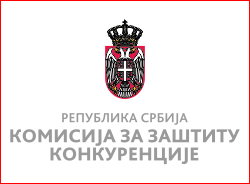
What has been rumored for quite some time has now been officially announced: Serbia will soon get a brand new Competition Act. The new legislation will replace the current Competition Act, adopted in 2009 and amended in 2013.
The announcement was made by the Serbian Competition Commission, which will prepare the initial draft together with the Ministry of Trade, Tourism and Telecommunications. Once the draft is ready, interested parties will have a chance to comment on the proposed legislation and put forward additional ideas on how the new law should look like.
According to the Commission, the purpose of having a new Competition Act is twofold: to bring Serbian competition law further in line with the EU acquis and to adjust it to the peculiarities of the Serbian market. At this point the Commission did not reveal more about what novelties the new law will bring. Several ideas come to mind with respect to what could be reformed in Serbian competition law, with these three a priority:
1. Merger filing thresholds should be increased
Currently, the Serbian merger filing thresholds catch a number of foreign-to-foreign transactions with no effect in Serbia. Due to this, many mergers are notified even though they do not raise any competition concern. Coupled with a substantial merger filing fee (EUR 25,000), it is questionable how such merger filing policy contributes to the protection of competition in Serbia.
2. EU damages directive should be incorporated into the new law
The current Competition Act regulates antitrust damages only in passing and the adoption of a new law is a great chance to incorporate the EU antitrust damages directive into the Serbian legal system. This would be in line with the Competition Commission’s announcement that the purpose of the new law is to further harmonize Serbian competition law with the EU acquis.
3. Self-assessment should be introduced for individual exemption
Serbia still has an exemption system based on prior approval by the competition authority, similar to what in the EU existed under EC Regulation 17/62. Just as with the facilitation of antitrust damages claims, a switch to self-assessment in the area of individual exemption of restrictive agreement would further align Serbian competition legislation with the EU model.